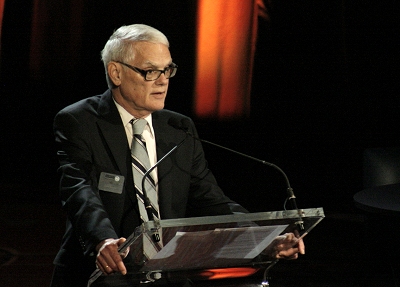"The world of marketing research is about to be transformed," Bob Barocci, President/CEO of the Advertising Research Foundation (ARF), proclaimed in his opening address to the organisation’s 57th annual conference. And he called for his organization – members, staff, and affiliates – to step up to the challenge. "When the ARF stops learning," he said, "the [marketing research] industry stops learning."
‘Shifting Sands’ is the theme of the 2012 ARF assembly and Barocci addressed the issue of change with a look back to the past. "In 2005, at this same conference, during this same opening speech" he said, "the topic wasn’t transformation. But it should have been…. The subject was learning." But, in 2012, he added, "We need a lot of learning to get ahead of change."

The media ecosystem is moving so quickly – with so many streams of information from so many different sources – that "what we don’t know about media usage is beginning to be more than what we do know. Change is getting ahead of knowledge."
For the industry to evolve – quickly – he added, "Transformation now is all about catching up. It’s all about learning. It’s not about being better consultants or storytellers. If we learn, we will be better consultants. We will be better storytellers."
Barocci continued, "As scientific observers we need to guide the economies of our culture to meet the needs of our consumer. But we can’t separate that from transformation… Learning must catch up with change and transformation must be led by learning. We’re not just observers anymore. We’re participants as well."
Barocci’s opener was followed by a collection of the marketing-research industry’s thought leaders, who reinforced the ARF message with their own list of immediate challenges.
David Calhoun, Nielsen CEO
"Global population is the biggest challenge for marketing research," said Calhoun. Citing the need to begin "building maps" for vast areas of Africa, China, and India, he added: "We’re just discovering, for the first time, where they’re going, what they’re thinking."
Eileen Campbell, Millward Brown Global CEO
"Restlessness" – from rising powers; from business in the East managed by businesses in the West; from clients; from the opportunities offered by different technologies – is Campbell’s major concern.
And there’s yet another restlessness that concerns her, she told the ARF audience. "There’s a new restlessness in people and in talent, trying to balance the commercial needs of business with the social needs they all may have."
From Campbell, also a bit of retrospective balance: "I’ve been in this business a long time. And, I’m certain that people will be talking about ‘transformation’ in 2020. It’s our one constant."
Matthias Hartmann, GfK CEO
Consumers, Hartmann said, seemed compelled to use "all the latest gadgets" to keep themselves informed. "Consumers, as well as our industry, are struggling to keep up."
But marketing researchers, he insisted, need to distance themselves from the frenetic pace of change. "We can’t just keep throwing isolated data back to our clients. We need to integrate it." To that end, new data sources – no matter how many – cannot be viewed as a threat. Instead, by becoming "trusted integrators" of information, "we can play a bigger role… But we have to keep pace."
Eric Salama, Kantar Chairman/CEO
"Our biggest need is for more talent in our industry. We don’t have enough people coming into the business, challenging the way we think, questioning the technologies and the way we [work]. We need more big-picture people."
Didier Truchot, Ipsos Chairman/CEO
The greatest challenges, Truchot said, happen in a space where education meets technology meets burgeoning populations. And it’s not just about demographics. The number of people who’ve learned to read and write in the last 40 years – in all parts of the globe – have changed the way people communicate and markets are structured.
"Eight hundred million Chinese people have phones and can communicate with one another. In Africa, because people have phones, they can do business even if they’re not together in the same villages."
The changes, he added, are powerful economic and cultural drivers. "And they’re why the economies in Africa are growing so quickly."
Romesh Wadhwani, Symphony Technology Group founder/Chairman/CEO
"Today’s consumers are not yesterday’s. They’re empowered. They’re in charge. It’s a new state of mind."
And this new consumer, Wadhwani told the ARF opening meeting, presents new challenges. "Vast volumes of data" – all delivered at "accelerating volume" – "often lead to very little insight." Market researchers, he said, "get so caught up with the process of integration of data that they have little time – or budget – for insights. It’s the result of an excessive focus on data" and too little attention paid to "connecting the dots" between the various sources.

